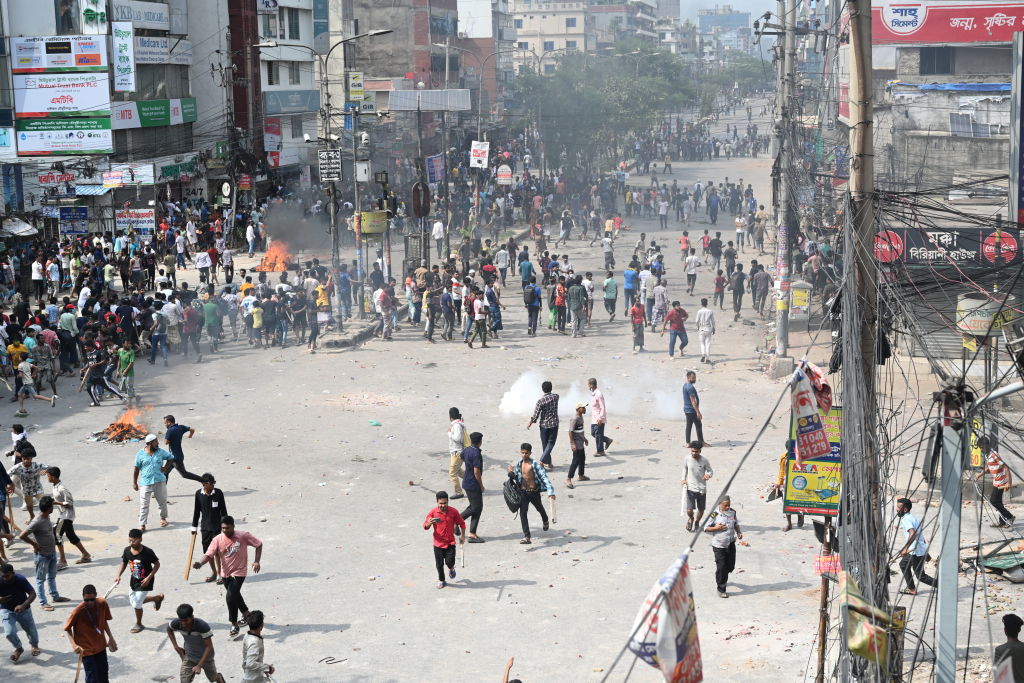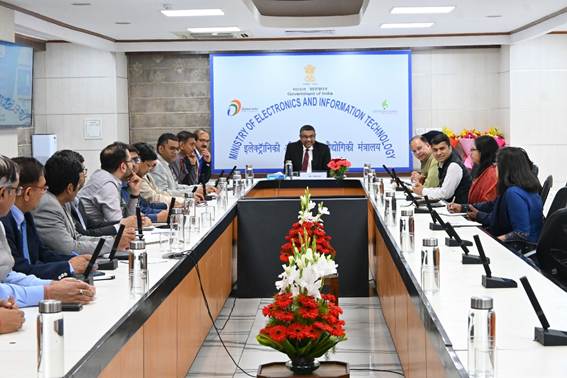Three people died in Bangladesh on Friday in fresh protests against quotas for government jobs, media said, as telecoms links were widely disrupted and television news channels went off the air.
Authorities had cut some mobile telephone services the previous day to try to quell the unrest, initially sparked by student anger against controversial quotas, but Friday’s wider disruption was not linked to a global cyber outage.
The government offered no immediate comment on the severed communications, but the new protests defied its order barring all public meetings and processions indefinitely after nearly two dozen people were killed in violence this week.
“I call upon all leaders, activists, and common people … to stand by these tender-hearted students, provide them with all support, and carry this movement forward,” Tarique Rahman, the exiled acting chairman of the main opposition Bangladesh Nationalist Party (BNP), posted on X.
Many opposition party leaders, activists, and student protesters had been arrested in a bid to give “political colour” to the movement, he added, but Reuters could not verify his statement about the arrests.
Friday’s deaths were reported, with no details, by the English-language website of Bengali newspaper Prothom Alo, which also said train services had been suspended nationwide as protesters blocked roads and threw bricks at security officials.
Reuters could not immediately verify the reports.
Police fired tear gas to scatter protesters in some areas, Reuters journalists said, as security forces and protesters swarmed Dhaka, the capital, where there was little traffic on Friday, a weekly holiday in the Muslim-majority nation.
A protest rally had been called for 0800 GMT at the main mosque, a Reuters witness said.
The nationwide agitation, the biggest since Prime Minister Sheikh Hasina was re-elected this year, has been fuelled by high unemployment among young people, who make up nearly a fifth of a population of 170 million.
But some analysts say the violence is now also being driven by wider economic woes, such as high inflation, growing unemployment and shrinking reserves of foreign exchange.
The protests have opened old and sensitive political faultlines between those who fought for Bangladesh’s independence from Pakistan in 1971 and those accused of collaborating with Islamabad.
The former include the Awami League party of Hasina, who branded the protesters “razakar”, making use of a term that described independence-era collaborators.
TELECOMS DISRUPTED, WEBSITES HACKED
Internet and overseas telephone calls were crippled on Friday, while the websites of several Bangladesh newspapers did not update and were also inactive on social media.
A few voice calls went through, but there was no mobile data or broadband, a Reuters journalist said, adding that even text messages were not being transmitted.
News television channels and state broadcaster BTV went off the air, although entertainment channels were normal, he said.
Some news channels displayed a message blaming technical problems, and promising to resume programming soon.
But there were no flight disruptions at the main international airport, aviation website Flightradar24 showed.
The official websites of the central bank, the prime minister’s office and police appeared to have been hacked by a group calling itself “THE R3SISTANC3”.
“Operation HuntDown, Stop Killing Students,” read identical messages splashed on the sites, adding in crimson letters: “It’s not a protest anymore, it’s a war now.”
Another message on the page read, “The government has shut down the internet to silence us and hide their actions.”
Thursday’s violence in 47 of Bangladesh’s 64 districts killed 27 and injured 1,500, the newspaper Prothom Alo said, while French news agency AFP put the day’s toll at 32, citing a police spokesman.
Reuters, which reported 13 dead, up from a tally of six earlier in the week, could not immediately verify the higher figures.
Protesters want the government to stop setting aside 30% of government jobs for the families of those who fought for independence from Pakistan.
Bangladesh’s Supreme Court, which has set an Aug.7 date to hear an appeal by Hasina’s government against a high court order last month to reinstate the quota system scrapped in 2018, has suspended the lower court’s order until the hearing.
On Thursday, the government said it was willing to hold talks with the protesters, but they refused, saying, “Discussions and opening fire do not go hand in hand.”
Reeling from the ripple effects of the Russia-Ukraine war, Bangladesh got a $4.7-billion bailout from the International Monetary Fund in January 2023.
In June it got immediate access to IMF loans of about $928 million for economic support and about $220 million to fight climate change.
(Reuters)




















